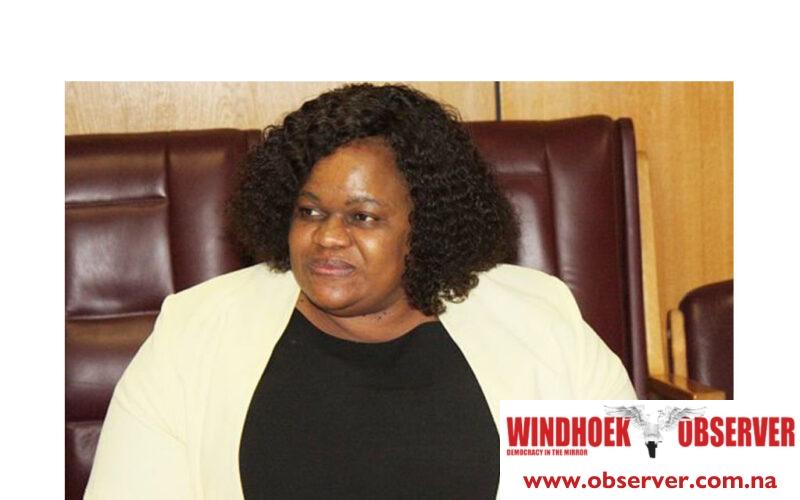Martin Endjala
Industrialisation and Trade Minister, Lucia Iipumbu, is adamant that unleashing the potential of entrepreneurship in the country can only be realised through collective efforts from all industry players, hence the need for collaboration.
“Let us commit to unleashing entrepreneurship potential through a coherent, multisectoral and long-term approach to enhance the role of entrepreneurship in economic, financial, social and environmental sustainability” she urged.
The minister was speaking during the Enterprise Ministerial, facilitating entrepreneurship for sustainable development at the eighth World Investment Forum 2023 in Abu Dabi last week.
She stressed that entrepreneurship strategies should leverage emerging business models that are inclusive, climate-resilient, gender-responsive and circular, incentivising social innovation and environmental preservation and protection.
Iipumbu said that Namibia recognises the importance of fostering a business environment that encourages private sector growth and entrepreneurship to support the nation’s development goals by adopting various initiatives and strategies to achieve these objectives.
“They have placed a strong emphasis on social enterprise and impact investment, to recognize the potential of businesses to drive positive social change and alleviate poverty, and the policies in place are said to support social enterprises that tackle pressing societal issues while generating economic value.
In addition, it also impacts investment, both domestic and international, and plays a crucial role in financing such enterprises, and the ministry is working to create an enabling environment for this type of investment,” she explained.
Another focal point, she said, is the promotion of entrepreneurship, with a particular focus on youth, women, and vulnerable groups. Lamenting that Namibia acknowledges the demographic dividend that comes with a young population and the untapped potential of women and marginalised communities.
“Part of our work is geared toward bridging the gap and uplift our informal business sector. Namibia is therefore in the process of developing our Informal Economy and Entrepreneurship National Policy and Law to cover the informal sections of our entrepreneurs as well as our youthful start-ups and general entrepreneurship.
The key aim is to unlock access to market and financing, enhancing entrepreneurship education and skills development,” said Iipumbu.
Through collaboration with development partners, the ministry dedicated itself to providing training, mentorship, and financial support to empower the groups to become active participants in economic growth through tailor-made interventions.
These include the entrepreneurial mentorship programme which they are advancing to these categories of businesses through its Empretec programme under the United Nations Conference on Trade and Development, as well as its gemstone cutting and polishing training which has a high uptake of the trainees mainly women in the formal job market given its richness in minerals resource.
Meanwhile, Namibia is currently undertaking deliberate efforts to revamp its Investment Promotion and Facilitation law with the aim of being inclusive to both foreign and domestic investors.
The new investment policy regime is geared towards enhancing a conducive business and investment environment in Namibia to fully leverage new investment strategies about renewable energies, and resuscitate its economic activities within an updated investment legislative and policy framework comprehensively.
Iipumbu reiterated that the path to sustainable and inclusive development necessitates the active involvement of the private sector, as well as strategic and well-coordinated policies, and believes that the exchange of ideas and experiences will help them move closer to achieving the Social Development Goals.




